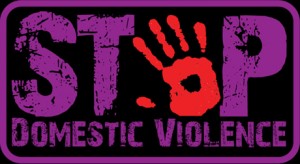Australian High Commission provides GH¢197,000 to address domestic violence
 The Australian High Commission has donated GH¢197,366.95 to the Pearl Safe Haven as part of its global commitment to addressing the scourge of domestic violence and abuse.
The Australian High Commission has donated GH¢197,366.95 to the Pearl Safe Haven as part of its global commitment to addressing the scourge of domestic violence and abuse.
The amount, raised at the High Commission’s 2018 annual Melbourne Cup Charity Gala, is to help build a safe house for victims of gender violence and abuse in the Greater Accra region.
Presenting the cheque to The Pearl Safe Haven at a brief ceremony in Accra on Thursday, Mr Andrew Barnes, Australian High Commissioner to Ghana, said violence against women was a global concern and the most widespread and socially tolerated form of human rights violation.
“Violence against women is a major obstacle to the fulfilment of women’s and girl’s rights and to the achievement of the 2030 Agenda for Sustainable Development,” he said.
Mr Barnes said ending violence against women and children is a priority for Australia, both domestically and internationally, in line with its commitment as a member of the United Nations Human Rights Council.
The safe house, he said, is a worthy cause for the Melbourne Cup funds, especially as the current system of support for the prevention of abuse and recovery for victims in the country is inadequate and underfunded; leaving those who suffer abuse no choice but to remain in the abusive situations.
“The safe house will provide a skills programme aimed at creating a refuge for survivors of violence to be able to rebuild their lives after the traumatic experiences they have encountered and for their economic independence after their stay,” he said.
He thanked the sponsors whose support and commitment has made the donation possible.
Ms Isobel Acquah, Project Director at The Pearl Safe Haven, a non-governmental institution focused on addressing gender violence, said the first batch of beneficiaries of the safe house would be a cohort of 25 young women between the ages of 18 and 25, who were victims of domestic violence.
The girls, to be identified and referred by the Domestic Violence and Victims Support Unit (DOVVSU), will stay at the safe house for a period of three months at a time and would receive holistic training programme during the period.
“…Initially the focus is going to be on their emotional, physical and mental wellbeing. There’s a lot of psychosocial issues that happen with trauma, not just the physical aspect of abuse and trauma,” she said.
The programme would then focus on building up practical skills and entrepreneurial knowledge in the women that would help them once they leave the safe house, as statistics show that women who are uneducated and poor were more likely to be victims of abuse.
Ms Acquah said The Pearl Safe Haven was also working closely, not only with DOVVSU who provide the input, but also with the Department of Social Welfare on the exit end, to ensure that the women were well integrated into society when they leave the safe house.
“For us it’s very important that it’s a private sector project but it’s very much dependent on public sector, not for financing, but to ensure we use all the public sector skills…it’s a very close partnership,”.
She urged government to do more, especially in changing the existing narrative when it came to addressing issues of domestic and gender violence or abuse, such as the laxity in prosecution or perpetrators, lack of funds for support services like the domestic violence fund.
Police and medical professionals should also be educated about gender-based violence so they could better handle victims who file complaints or present injuries to hospitals.
Ms Acquah urged other stakeholders and religious institutions to commit to help change the narrative by talking about the issues on their platforms.
“We need to actually be serious about the subject and not hide behind culture, religion, business or lack of finance. There’s a lot that the government can do, even without financing,” she said.
Source: GNA
